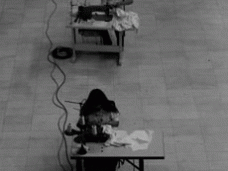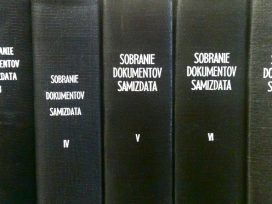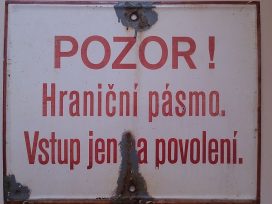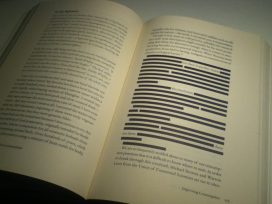The figure of the German in recent Polish literature reveals shifts in perspective from the experience of war to that of exile and resettlement. Representations of the German other in Polish self-imagining.
Articles
Read more than 6000 articles in 35 languages from over 90 cultural journals and associates.
Bosnian Serb war criminal Biljana Plavsic is to be released from a Swedish prison later this month after serving two thirds of an 11-year sentence. Slavenka Drakulic notes that Plavsic’s “confession” in The Hague was nothing but a staged farce.
European stability is threatened less from outside than from within, argues Samuel Abrahám. Does the EU possess a strategy for dealing with the type of illiberal politician gaining ground in the Visegrád Four nations?
Still tending our own gardens
A response to Samuel Abraham
Corruption continues to play a decisive role in the relationship between the state and its citizens. Éva Karádi, editor of Magyar Lettre Internationale, responds to Samual Abrahám’s warning that European stability is threatened by the type of illiberal politician gaining ground in the Visegrád Four nations.
The EU is not a sacred cow
A response to Samuel Abraham
The question is not how we can protect the EU from demagogic leaders, but how the EU can protect us from them. Marek Seckar, editor of Host, responds to Samual Abrahám’s warning that European stability is threatened by the type of illiberal politician gaining ground in the Visegrád Four nations.
Devotion to “historical truth” can become an easy target for political manipulation. Deconstruction of national myths does not equate to destruction, but rather the rethinking and rearranging of the symbolic meaning of history.

The return of the red bourgeoisie
An interview with Nada Prlja
Heavily influenced by the Black Wave or dissident Yugoslav cinema of her childhood, artist Nada Prlja considers its unique balancing act between iconoclasm and idealism, individualism and communism to be exemplary. In an interview with Stefan Szczelkun, Prlja talks about the cultural context of communist Yugoslavia and its mutation into a consumer culture – a shift that her artwork pivots on.
Myths of neutrality
Ignoring the Holocaust in Sweden and Switzerland
In Sweden and Switzerland, complicity in the Holocaust was for a long time ignored. It was only as a result of foreign publicity that national myths of neutrality gave way to admissions of responsibility, writes Arne Ruth.
Even if the West undertakes no obligations vis-à-vis the Rest, the principles upon which it is built suggest some responsibility, writes Mykola Riabchuk. Ukrainians are particularly wary of the Realpolitik that dominates western dealings with Russia. Whatever one thinks about the “centuries old affinity” between Ukraine and Russia, any policy that downplays the issue of values is fundamentally flawed.

As the fog lifted
Literature in eastern central Europe since 1989
After 1989, uncensored editions of many classics of contemporary eastern European literature became available, and numerous authors were discovered for the first time in the West. Meanwhile, a younger generation of writers, their imaginations liberated by events, were quick to respond to the new appetite for understanding the communist past. Katharina Raabe, editor for eastern European literature at Suhrkamp Verlag, surveys some of the most important of these authors and describes German publishers’ role in bringing them to western readers.

“Like the champagne from the bottles in Prague, that’s how the tears came rolling from my eyes! I’m tellin’ ya, if a Czechoslovak had been within reach, I’d’ve licked his ass clean!” A tough-talking Magyar remembers the stirrings of neighbourly affection in ’89.
“Increasing social distance between the poorest and the richest diminishes social cohesion, which in turn means more collective problems and fewer resources for solving all our other collective problems.” Göran Therborn on why inequality matters.
Challenges of freedom
International conference in Krakow
The conference “Challenges of freedom” takes place on 8 and 9 October in Krakow. The event, organized by Villa Decius in partnership with Eurozine, will discuss the essence of ideologies of liberation and the role of ethical values in initiating historical change.

“It is an unnatural but positive development when democracy trains people to believe that, overall, it is better to let the bastard speak.” Former Solidarity activist and journalist Konstanty Gebert talks to Irena Maryniak about censorship post-’89 and anti-Semitism in Poland today.
Designing the margin of feasible bodies
Truths and binary oppositions in the construction of sexes-genders-sexualities
The controversy around the gender of the South African athlete Caster Semenya is by no means unprecedented. As Nuria Gregori and Silvia Garcia Dauder write, the world of sport is a social microcosm that reveals much about the role of assumptions concerning biological sex in a psychosocial logic in which gender identity, sexual orientation or sexual practice exerts maximum authority.